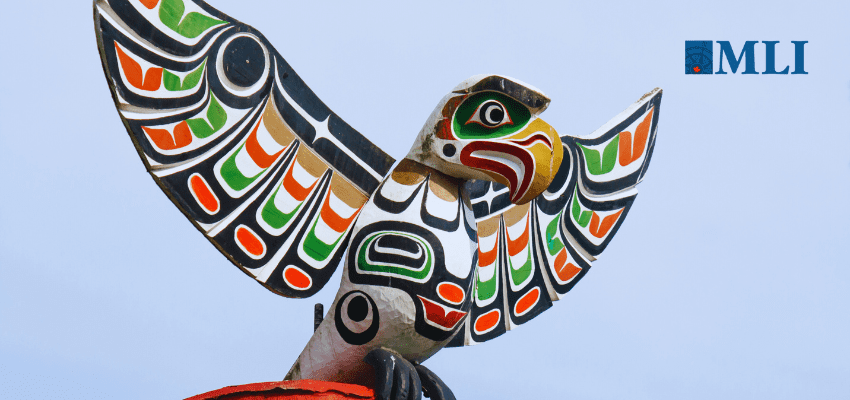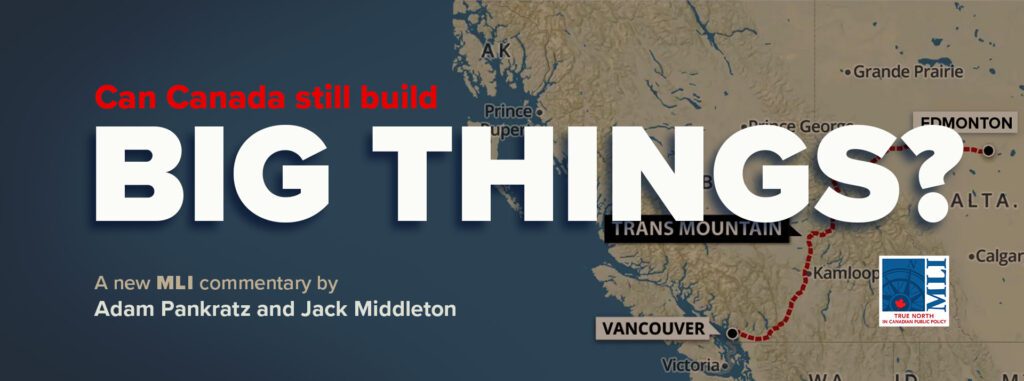This article originally appeared in the Globe and Mail.
By Karen Restoule and Ken Coates, August 19, 2024
Sudden wealth presents a problem for almost anyone, whether you’re a lottery winner or the recipient of a major court settlement. Regardless of the source or reason, the new money can generate excitement matched with anxiety. For First Nations, Métis and Inuit, the new availability of major compensation presents personal and collective opportunities – and gut-wrenching decisions.
Over the past few decades, Indigenous communities have negotiated settlements and compensation worth billions of dollars with various entities in Canada, including an unprecedented $50-billion child and family welfare deal concluded in July by National Chief Cindy Woodhouse Nepinak of the Assembly of First Nations. Some funds are personal in nature, such as compensation for the horrific actions that took place in residential and day schools, and for the removal of children from their families during the Sixties Scoop. In these cases, the money goes directly to the victims and their families, with no Indigenous or national government involvement.
Many other settlements, however, are collective in nature. When the government compensates a First Nation for lands stripped illegally from a reserve, the funds go to the First Nation. The Indigenous government can, if it chooses, distribute the money to individuals. Dozens of communities are now wrestling with the financial choices arising out of Treaty Land Entitlement settlements, significant court rulings, arrangements with resource companies or compensation agreements from any of the thousands of government actions that have caused such hardship and despair to Indigenous peoples in Canada.
This is an important departure from the recent past, when Indigenous peoples struggled to secure respect for their rights. Governments steadfastly ignored their legal and moral obligations as Indigenous communities suffered the cruel combination of deeply entrenched poverty and major barriers to economic opportunity.
It must be noted, however, that large “event” settlements, even if combined, would make only a small dent in the massive infrastructure and service debts facing First Nations, Métis and Inuit people across Canada. Any idea that even multibillion-dollar settlements will bring widespread prosperity to Indigenous communities, let alone bridge the substantial gap between Indigenous and non-Indigenous peoples in the country, is simply wrong-headed. Compensation agreements are just that – compensation for past government misdeeds or errors. They are not intended to provide much-needed structural reforms.
The cash infusions are welcome, even if they come with difficult, even painful choices – ones that few other Canadians ever have to make. The settlements stir many emotions among the recipients: relief, anger at the long delays, concern about the scale of the payments and often tense divisions over the best use of the money.
There is so much at stake, both individually and collectively, that the decisions take a long time, cause considerable turmoil inside communities and offer no assurance of the desired outcome. Most Indigenous communities are coping with multigenerational poverty, to say nothing of major housing shortages, inadequate internet access, systemic poverty, educational deficits, and the wreckage of trauma associated with racism, discrimination and dispossession.
Consider the case of the Garden River First Nation, one of 21 signatories to the Robinson Huron Treaty settlement in Northeastern Ontario. The Robinson treaties were signed in 1850, with the First Nations people promised a small annuity as compensation for the surrender of their lands. The annuity was to increase when regional prosperity dictated. Despite numerous requests, no such increase was provided.
The 21 signatory First Nations went to court – a long and expensive collective journey – and negotiated an impressive $10-billion agreement in 2023, paid equally by the governments of Canada and Ontario. (The resolution of a parallel case, covering the Robinson Superior Treaties, is still pending.) Garden River will receive about $610-million, with up to $50-million to come from a fund set aside to cover the costs of negotiating the agreement.
After intense discussions within the community, Garden River’s chief and council agreed to provide a payment of at least $110,000 to each member of the First Nation. There are, inevitably, questions about eligibility, with the nation relying on federal government registries to determine who is to get paid. Importantly, Garden River has set aside $200-million in a trust fund to be used for the betterment of the community. The settlement clearly has the potential to change hundreds of lives.
The annuity payments were and are individual. The settlement agreement acknowledges that the government of Canada, by failing to honour its treaty obligations, withheld money owing to individual First Nations citizens. The money was held back from current First Nations people, and their parents, grandparents, great-grandparents and so on. Successive generations of Garden River citizens (and the other Robinson Huron signatories) were the poorer, and undeservedly so. The community would have been well within its rights to allocate all funds to individuals.
However, the Garden River First Nation, like many other First Nations, opted to divide the financial settlement among individuals and the collective. It is a decision that few, if any, non-Indigenous communities would make.
One incomplete comparison would be if the Canada Revenue Agency admitted to an illegal, multigenerational error in calculating income tax that resulted in each resident of a particular community receiving a sum significantly smaller than what they deserved on their annual return. Individuals would, appropriately, demand repayment.
While there is a willingness to support the collectivity – most Canadians pay their taxes with little resistance or even regret – few non-Indigenous people would agree to give a third of the money or more to a community investment fund.
Collective income, like the returns received from the Robinson Huron settlement, is vital to Indigenous communities. It will be used for economic development projects, needed infrastructure, language and cultural programs, and other initiatives. More than anything, new revenue generated will free Indigenous governments from the still-oppressive and paternalistic hand of the government of Canada. Autonomy, including financial independence and the well-being of families and individuals, is fundamental to the long-term resilience and rebuilding of Indigenous communities across the country.
It is important to note the widespread Indigenous effort to balance individual and collective benefits. Many members of the Robinson Huron Treaty settlement made loud demands for the distribution of the money among eligible First Nations people (sparking big debates about eligibility). But the chiefs involved with the settlement made decisions that balance payments to individuals with the establishment of a First Nations trust that will allow communities to address major infrastructure gaps, while holding back funds to support future generations.
The economic power of the collective in the management of compensation funds is a vital reminder that Indigenous people approach finances in a fundamentally different way than most Canadians. It falls to other Canadians to congratulate Garden River and the other 20 Robinson Huron signatory First Nations on their successful negotiations, and to wish them well as they adapt to the reality of their hard-won battle for justice. Tough, but impactful, decisions will accompany these substantive reparations.
Karen Restoule is a senior fellow at the Macdonald-Laurier Institute and from Dokis First Nation.
Ken Coates is a distinguished fellow and director of Indigenous affairs at the Macdonald-Laurier Institute.







